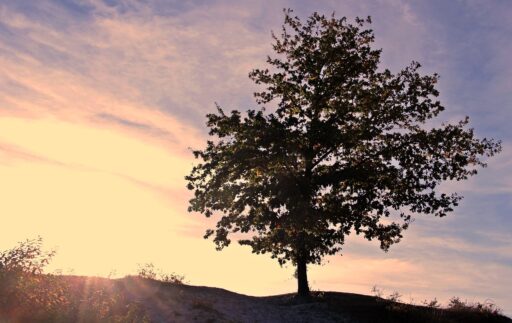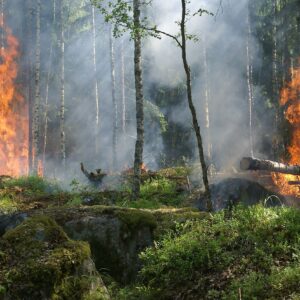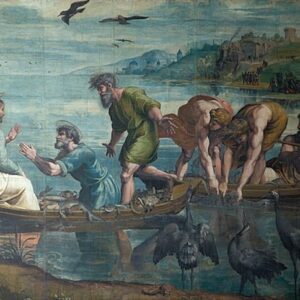I’m going to have to bow out for a little while. In the middle of life’s way I have suddenly returned to school to study environmental science and law. Whether this is wandering in a dark woods—and if it is, whether I will emerge on the right side of the woods—time will tell. I don’t think of this wandering as a complete career shift, as I still have literary work to publish. Nevertheless, I have felt for some time now a need to move far outside the intellectual zone that has been familiar and comfortable to me my entire adult life. My posts here will therefore become infrequent, unfortunately.
I find myself surrounded by books with titles like The Making of Environmental Law, International Climate Change Law, The Rights of Nature, The Green Amendment, Nature’s Trust, The End of Sustainability, Indigenous Rights and Water Resource Management, Reason in a Dark Time, The Logic of Sufficiency, Environmental Policy Law, and other suchlike. But I am also reading books with titles like The Rule of Saint Benedict and Matter and Desire.
Yes, that’s right, in my spare moments I’m studying the Rule of Saint Benedict, trying to think about what in a recent post I called the future religion. I’m convinced that in Benedict’s Rule there is a psychological insight and key that will prove indispensable in the near future, but which is overlooked by many contemporary environmentalists. I have had in mind Alasdair MacIntyre’s famous statement at the end of After Virtue that “we are waiting not for a Godot, but for another—doubtless very different—St. Benedict.” I have seen people pick up on this line, but so far none of them have made much account of the very different part.
And I have once again dipped into the work of the eccentric Englishman Reginald Horace Blyth, specifically his four-volume translation of Haiku with commentary (available from Angelico Press). Blyth lived from 1898 to 1964, most of his adult life in Korea and Japan. A little while back I stumbled on his five-volume Zen and Zen Classics. Those had a huge impact on me. His Haiku books are perhaps even more enjoyable.
Blyth was, I think, a deeply spiritual man, though not in a way that tends to get much respect these days by Westerners who consider themselves religious. He was capable of being serious, but also blessed with a kind of levity we could use more of. The Gospel and Zen coexisted in Blyth’s mind, and both were subject to his ultimate criterion: the poetic. Or it might be better to say that the Gospel and Zen, when they are truly poetic, were for Blyth ultimate expressions of the poetic.
In any case, Blyth had a mind that was both Eastern and Western, and a writing style to match. He is the only author I have read who ranked Thoreau’s first book, A Week on the Concord and Merrimac Rivers, among the most important and perfect works of English literature. In fact, I don’t think I’ve read anyone who has understood Thoreau as well as Blyth does—and he did not have access to Thoreau’s work beyond the two books published in his lifetime and his essays. Using Blyth, or perhaps just inspired by him, I could write a little book on Thoreau and why I think he’s key to “the religion of the future.” Maybe I’m doing that even now….
R.H. Blyth has inspired me to contemplate another project, although, like the annotation of the hypethral world as it appears in the Bible, which I proposed in my last post, this is a project someone else will have to take up. As a complement to Zen and Zen Classics, someone ought to compile and annotate something along the lines of Christ and Christian Classics. Taking the lead from Blyth, this collection and commentary would consist primarily in what we now normally call literature, or at least very literary or poetic passages from religious authors.
Now that I think about it, one could combine this thing I’m calling Christ and Christian Classics with my idea of the annotated hypethral Bible. The Christ part would be the inventory and reflection upon Jesus out of doors, with passages from the Hebrew Scriptures as well. The Christian Classics part would then consist of literature that, as it were, extrapolates from those passages of scripture. My choices would of course be rather weird. I would include passages by Jonathan Edwards next to some by Thoreau. William Cowper would be allotted much space, as would James Thomson, Robert Bridges, Rachel Carson and Clarice Lispector, Richard Hakluyt and Michael Drayton, Karen Blixen and Adalbert Stifter….
Well, I’m not going to be putting that work together anytime soon. What I’m more likely to be doing is something else that stems from R. H. Blyth’s thought. There was an idea he broached often but subtly, an idea whose time has come round again: animism. All spiritual vitality, Blyth thought, comes from a residual animism. I believe he was right. But, you ask me, what in the world does this have to do with environmental law and policy? For that matter, what does it have to do with biblical faith?
There is a relatively new movement in legal theory called the Rights of Nature, which is gradually beginning to build a body of law internationally. This is where my thought and research has led me in recent years, and I’ve begun thinking of the Rights of Nature movement as a new iteration of the ancient idea of animism. I’ve come to see historical Christianity as a necessary cleansing of original animism. Now that sensibility may return.
It is written that God saw all that he had made, and it was very good. Without him nothing was made that has been made. It is written also that God so loved the world he gave his only begotten son so that whoever believed in him should have eternal life. What animism—the personhood of the non-human creation—proposes is that it is not humans only who have this thing we call belief or pistis, trust. All that is made trusts in its maker as naturally as a child loves its parents. Humans alone—and humans when they are alone, feeling cut off from all else—have trouble trusting that truly they are made, that God is a God of the living, and so all that he makes is living.
This idea cannot return to the culture through religion. The institutional religions, however much we may adhere to them individually and in small communities, have lost their power to persuade on a civilizational level, using the traditional vocabularies of metaphysics and faith. But the idea is creeping back in through law, and environmental ethics, and an ever more ecological science. It’s in service of this idea—the idea, put simply, of creation—that I have returned to school. More and more of us feel a desire to serve this primordial yet newborn idea in whatever small way we can. No doubt some of us serve it unknowingly, like the Greeks whom Paul addressed who worshipped the unknown god.
Jonathan Geltner lives in Ann Arbor MI with his wife and two sons. His translation of Paul Claudel’s Five Great Odes is available from Angelico Press and a novel, Absolute Music, is available from Slant. If you enjoy his posts at Close Reading, check out his new Substack, Romance and Apocalypse, for more frequent and in-depth essays on the places where literature and other arts meet religious ideas and experience.





